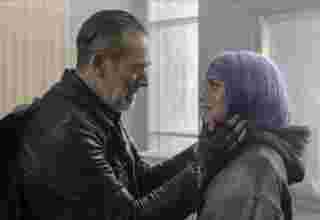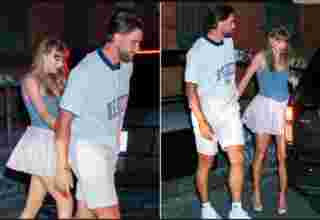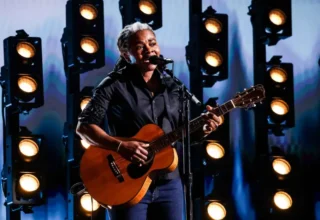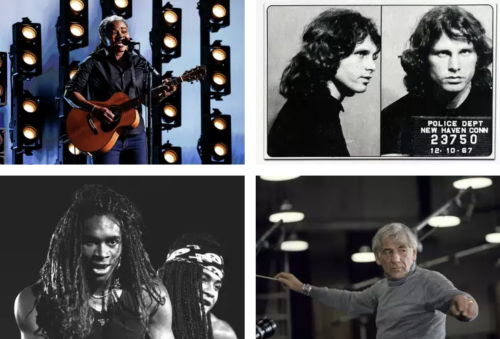
Due perhaps to its many syllables, Connecticut doesn’t feature in many song lyrics, but the state has been home to a surprising number of important, fun and just plain strange moments in music history. From the original lip-syncing scandal to a famous rock “concert” without music and infamous New Haven arrest of a music icon, Connecticut’s history is brimming with high — and occasionally dissonant — notes.
Here’s a list of some important, interesting and quirky moments in Connecticut music history.
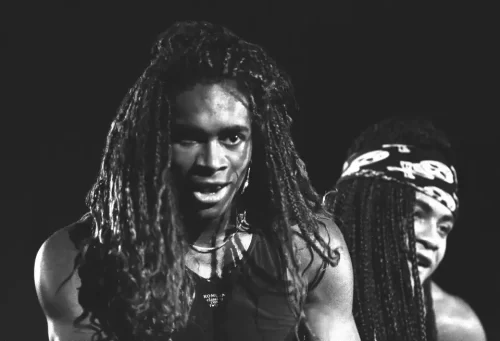
John Atashian/John Atashian/Getty Images
Milli Vanilli gets caught lip-syncing
On July 21, 1989, during a performance at Lake Compounce in Bristol, the German pop duo Milli Vanilli’s backing track began to skip, continually repeating the line “Girl, you know it’s…” from their hit song “Girl You Know It’s True.” Rob Pilatus — one-half of the Milli Vanilli duo — ran off the stage in embarrassment. It was the first major crack in exposing what is considered one of the biggest entertainment frauds in history. After the Lake Compounce incident, people began to question who was really singing Milli Vanilli’s songs. Though they won a Grammy for Best New Artist the following February, the Lake Compounce incident is cited as the beginning of the end for the duo. In November 1990, producer Frank Farian admitted to fabricating Milli Vanilli by fronting music created by studio musicians with two charismatic dancers — Pilatus and Fabrice Morvan. In the years since, the duo’s name has become synonymous with inauthenticity, but lip-syncing has become more common and almost accepted at major televised performances. While Pilatus and Morvan didn’t actually sing a note on their record, they weren’t the first or the last performers to use backing vocals during live performances. This irony wasn’t lost on contemporary observers. As The New York Times music critic, Jon Pareles noted in 1990, “The record business seems to hope that by throwing the duo to the sharks, it can somehow create the impression that while Milli Vanilli was a fake, the rest of what pop fans hear on records and see in video clips is a documented repository of innate talent and artistic integrity.”
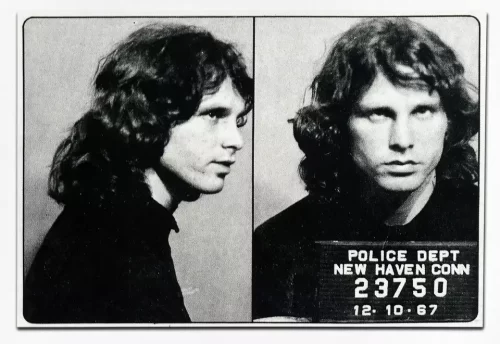
File photo
Jim Morrison’s New Haven arrest inspires classic song
On December 9, 1967, The Doors were scheduled to perform at the New Haven Arena. Before the show, Jim Morrison was kissing a woman backstage. A police officer hired to provide security for the band, but who didn’t recognize Morrison, told Morrison and the woman to leave. During the argument that followed, Morrison was maced by the officer, Ray Manzarek, keyboardist for The Doors, said in a 2008 interview. Later on stage, Morrison started singing and complaining to the crowd about police abuse. The concert was stopped and Morrison was arrested. The crowd grew angry and spilled out into the streets, but according to Today in Connecticut History, a website maintained by the Office of The State Historian, “initial descriptions of the scene as a ‘riot’ were overblown, since no violence or injuries were reported.” After an ionic mugshot of him was taken, Morrison was released on bail and the charges against him were eventually dropped. The incident made its way into rock history when Morrison included the ominous line, “Blood on the streets in the town of New Haven” in The Doors song “Peace Frog,” which is believed to have been inspired by the singer’s experience in the city.
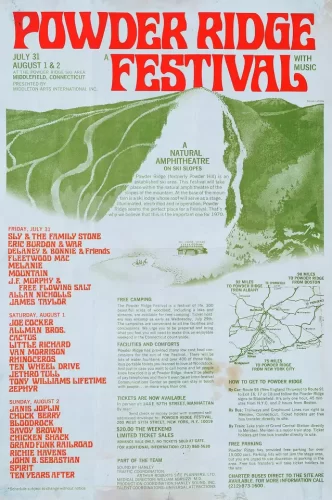
Contributed by Gorman Bechard
The second Woodstock that never was
In July 31, 1970, The Powder Ridge ski area in Middlefield was set to host a massive concert that some said would rival Woodstock and feature performances from Fleetwood Mac, James Taylor, Little Richard and Janis Joplin. Due to the tumultuous politics of the time, the shooting at Kent State had occurred three months earlier, townspeople wanted the concert canceled and a judge agreed to issue an injunction against it. The performers, for the most part, stayed away but as many as 30,000 people showed up for the concert anyhow and held a raucous three-day party that lives on in Connecticut lore. “The ski slopes were slathered in dangerous drugs, nonchalant nudity and non-stop partying the likes of which Middlefield, and quite possibly Connecticut, had never seen before or since,” Mike Wollschlager wrote for Connecticut Magazine in 2020.
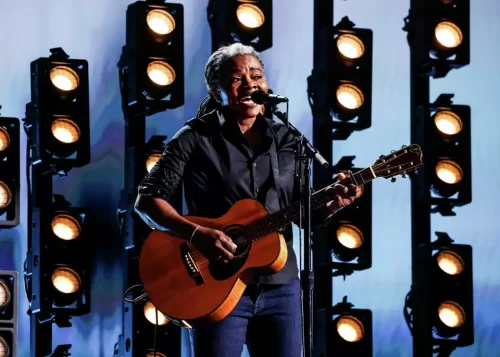
John Shearer/Getty Images for The Recording A
Tracy Chapman goes to high school
Tracy Chapman is enjoying a well-deserved resurgence thanks to country star Luke Combs’ award-winning cover of her 1988 hit “Fast Car.” In February, Chapman joined Combs for a performance of the song at the Grammys in a rare public appearance. Long before she became a household name, however, Chapman was a high school student in Danbury. Born in Cleveland, Chapman attended the Wooster School, a private school in Danbury, through donations by a nonprofit. Chapman has said in the past that she didn’t relish her time in the Hat City.
“Even though almost everything was paid for — my books and my transportation to and from vacations — you’d end up on shorter vacations where you couldn’t really go home and you couldn’t stay at the school,” Chapman told Rolling Stone in 1988. “So you’d have to go to someone’s house, and often they were people I didn’t know. And you did get the sense that they felt like they were doing charity work.”


